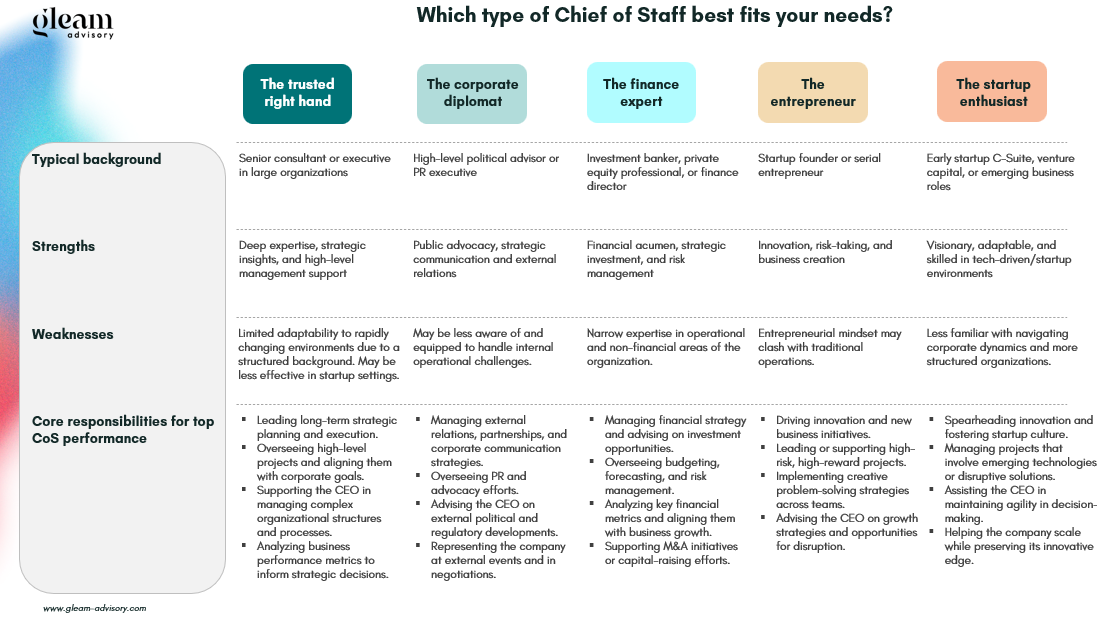From the diplomatic maestros to the finance gurus, each Chief of Staff brings their own flair to the role. But how do you choose the right one to enhance your performance as a CEO?
Don’t worry—we’ve got you covered. We’ve put together a concise overview of the main Chief of Staff archetypes to help you find the perfect match for your leadership style and needs. This snapshot highlights their backgrounds, strengths, and key areas of distinctive performance, so you can quickly identify which archetype will best align with your goals.
Keep in mind that versatility should be a fundamental quality of any Chief of Staff. Finding someone who excels in their core strengths while adapting to various challenges will boost your effectiveness.
The trusted right hand
The trusted right hand is a seasoned professional with extensive experience in major consulting firms or large corporations. Acting as a close advisor to the CEO, this archetype excels at offering strategic insights and high-level management support. Known for their deep expertise and reliability, they are well-equipped to handle complex responsibilities. However, they may struggle to adapt to the fast-paced and more fluid nature of startups, as their experience often stems from traditional, highly organized environments.
The corporate diplomat
The corporate diplomat is skilled in managing external relations and corporate affairs. They often have a background in politics or public relations. They excel in advocacy, strategic communication, and maintaining key external relationships. While their expertise in these areas is a valuable asset, this outward focus may come at the expense of addressing internal challenges. In France, a country that values polished diplomacy, this profile thrives.
The finance expert
The finance expert comes with a robust background in investment banking or private equity, offering advanced financial expertise and strategic investment skills. They excel at managing financial strategies and evaluating risk. However, their emphasis on financial metrics may limit their experience in broader operational or strategic management. This specialization can result in less familiarity with the non-financial aspects of running a business.
The entrepreneur
The entrepreneur is a dynamic, risk-tolerant individual known for their innovative spirit. With a track record of launching ventures or pursuing multiple side projects, they are fueled by a passion for building and growing new businesses. While their entrepreneurial mindset brings fresh ideas and energy, they may struggle with traditional corporate structures and processes. Their approach can sometimes clash with more established or conservative business practices.
The startup enthusiast
The startup enthusiast is characterized by their energetic drive and passion for new technologies and high-growth environments. With a background in tech startups or venture capital, they excel at adapting to fast-paced changes and driving innovation. However, they may struggle to navigate larger, more structured organizations, and their experience may not always easily translate to the complexities of corporate dynamics or traditional business processes.




